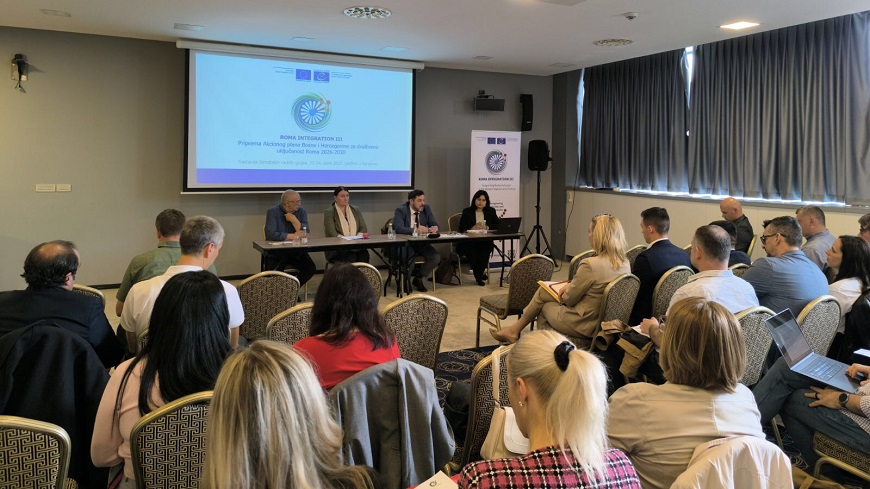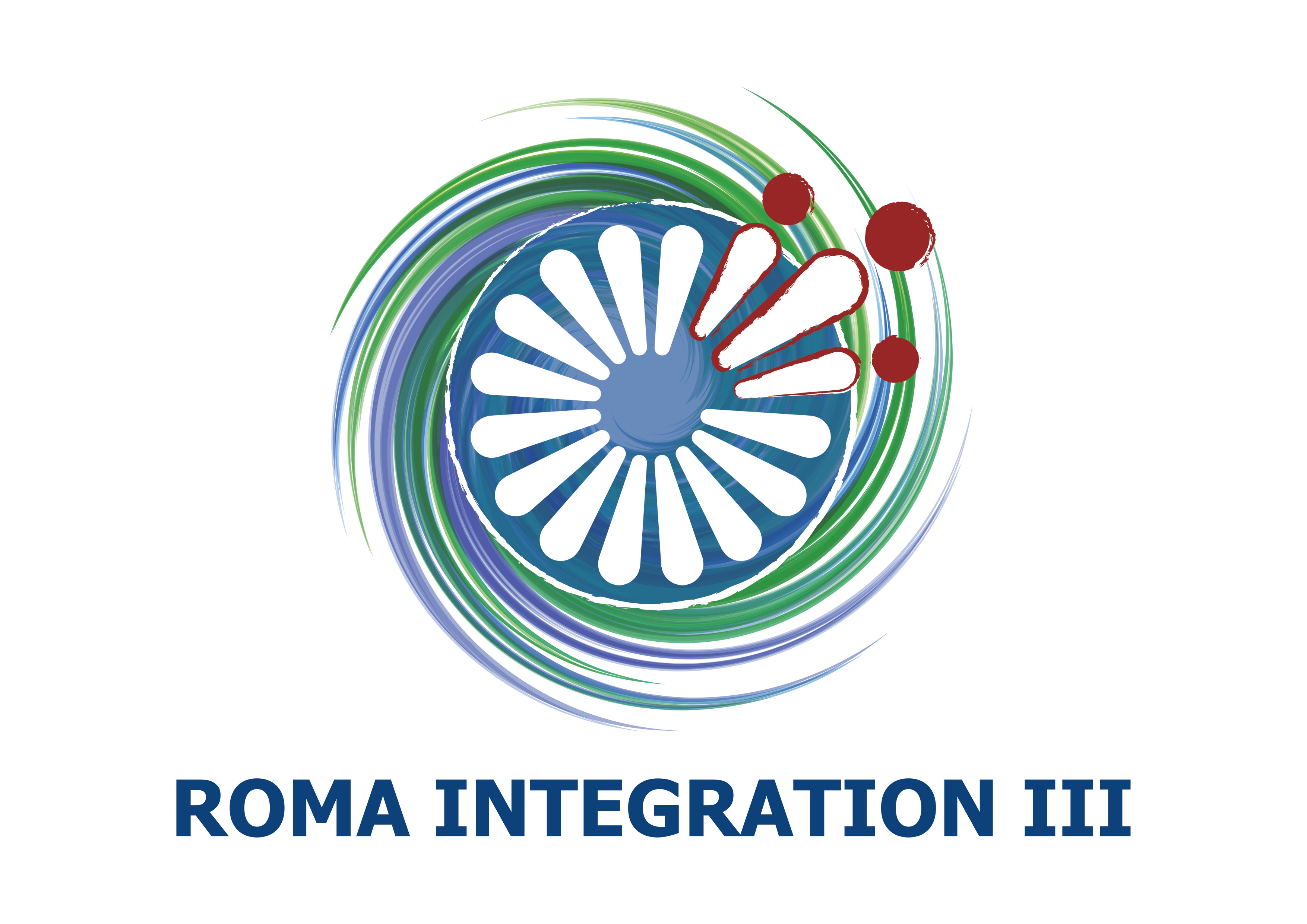From 22 to 24 April 2025, representatives of public institutions and civil society organisations gathered in Sarajevo for a consultative meeting on the development of the Action Plan on Social Inclusion of Roma in Bosnia and Herzegovina for the period 2026–2030.
The event focused on identifying strategic priorities and elaborating proposed measures and indicators in key thematic areas: Roma culture, history, and language, education, employment, housing, and healthcare. The meeting was jointly organised by the Ministry for Human Rights and Refugees of Bosnia and Herzegovina and the Joint Programme of the Council of Europe (CoE) and the European Union (EU) – Roma Integration Phase III.
Opening Remarks
Kemo Šarac, Assistant Minister for Human Rights, emphasised that the purpose of the Action Plan is to empower Roma as a nation with a rich cultural and historical heritage. He highlighted the importance of fulfilling the commitments made under the Poznan Declaration and other obligations tied to the European integration process.
Dervo Sejdić, a member of the Board for Roma, underlined the need for systematic data collection and responsible budgeting as prerequisites for the effective implementation and monitoring of the Action Plan. He also noted that the proposed measures must be both realistic and achievable.
Ajsa Adrović Bešlagić, Programme Manager at the EU Delegation to Bosnia and Herzegovina, reminded participants of the significance of the European Commission against Racism and Intolerance (ECRI) recommendations—particularly General Policy Recommendation No. 13 on combating antigypsyism and discrimination against Roma. She stressed the importance of addressing cross-cutting issues, such as the position of Roma women, youth engagement, and alignment with the green and digital agendas.
Dragana Jovanović Arijas, Project Officer for the Roma Integration Phase III Programme, informed attendees that the Council of Europe’s Roma and Traveller Division is currently preparing a new Strategy for Roma and Traveller Inclusion 2026–2030. She outlined three core strategic priorities:
- Increasing awareness and knowledge to combat antigypsyism and promote pride in Roma and Traveller identity;
- Strengthening national policies and legislation by implementing Council of Europe monitoring recommendations;
- Promoting democratic governance and enhancing Roma participation in public and political life.
Consultation Process and Key Conclusions
During the meeting, participants worked in thematic groups to refine the draft strategic goals and measures, share good practices, and discuss ongoing challenges. The following conclusions emerged:
- Enhanced outreach and adapted administrative procedures are critical for improving Roma inclusion.
- A grassroots support system—including civil society organisations, mobile teams, facilitators, and mentors—is essential. Effective models should be scaled up and replicated across other municipalities.
- Targeted research should be conducted to address the lack of reliable data on issues affecting Roma communities.
- Funding sources at all levels of government should be identified, with stronger advocacy to ensure Roma benefit from these financial resources.
This consultative meeting marked a crucial step in shaping a comprehensive and actionable policy framework to support the long-term inclusion and empowerment of Roma communities in Bosnia and Herzegovina.


